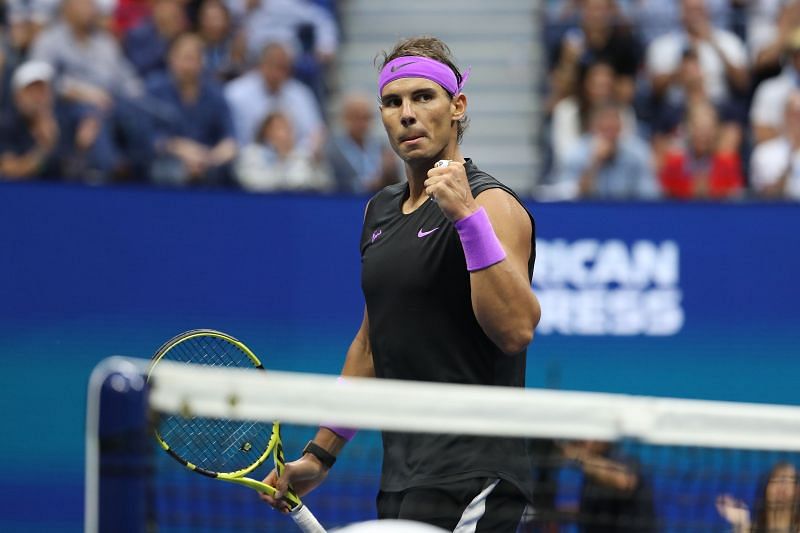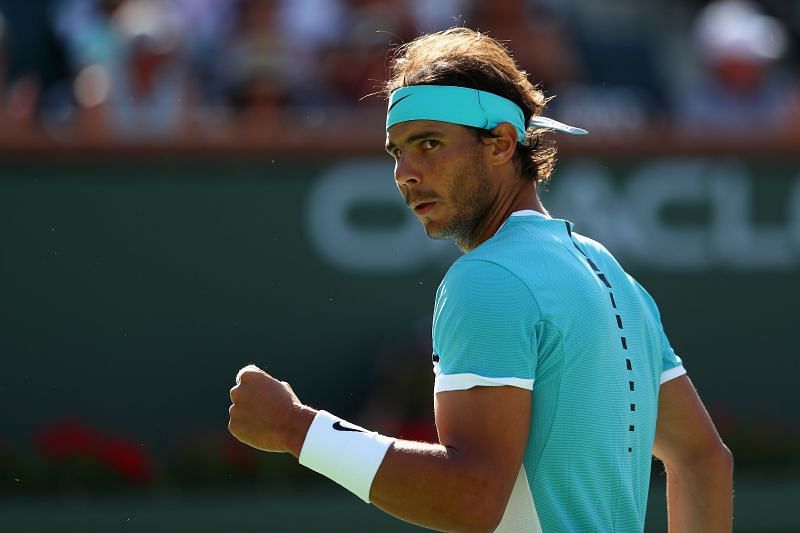
For most athletes the pain level is 3 on a scale of 10, but for Rafael Nadal it is 7: Renowned French doctor

Rafael Nadal is undoubtedly one of the greatest players of all time, having won 12 French Open titles and 19 Slams overall. But the left-handed Spaniard, whose game is based on brute strength and tireless retrieving, has had his share of hardships along the journey.
Tennis is a sport that is greatly reliant on physicality, unless you are naturally gifted like Roger Federer. And while Rafael Nadal has reaped rich rewards with his immense physicality and stamina, he has also been injured a lot over the years.
Recently, famous osteopathic doctor Ben Illouz, who has worked with several football players from the Second Division of the French Football League, appeared in a podcast where he discussed Rafael Nadal's injuries and how the World No. 2 has coped with them.
Rafael Nadal plays with inflammations until the moment where he is really at the end: Ben Illouz
Rafael Nadal had recently disclosed that he had to play with anesthesia during the 2008 Wimbledon final because of a foot injury, which has bothered him for a large part of his career. Ben Illouz remarked that that is not unusual for the Spaniard, who has learned to play through the pain.
"Sometimes, there are people who really do not seem to be in pain at all. There are people in sports, who on a scale of 10 for example, they will say that they have pain at 3 while for Rafael Nadal it is at 7. Rafael Nadal is someone who plays with inflammations until the moment where he is really at the end, and there is no alert to his body," Illouz said.
The doctor then shed light on the aforementioned foot injury that Nadal has repeatedly struggled with. The problem has arisen due to a rare birth defect called Kohler's foot, and Illouz elaborated how the Spaniard has had to go above and beyond what ordinary humans are capable of to deal with it.
"This is what we saw when Rafael Nadal withdrew from his first French Open because of a stress fracture on the sole of his foot. It's the same problem he faced in a lot of tournaments he was young. We don't get stress fractures for no reason. I, without pain, try to force my foot a little and if I have too much pain I stop. Whereas Rafael Nadal was playing with pain in his foot in 2003 and later," Illouz said.
"People want to be cozy because they have pain everywhere, but in fact when you look at Nadal he forces himself so much. It triggers so much energy which is above the limits of normal strength and intensity than what the common man can do," he added.
Rafael Nadal is a man educated in mental resistance: Illouz

Over the years, Rafael Nadal has been beset by niggling injuries to his shoulder, wrist, abdomen, hamstring, right ankle, hamstring - you name it. The most upsetting injury for the Spaniard, however, remains the knee tendinitis that forced him to withdraw from Wimbledon 2009.
"Every part of Rafael Nadal is affected and yet he continues to play like he does. I know how he does it but I do not understand. It must be traumatic to feel the rebound, the shocks in his knees where he has had chronic injuries," Illouz said.
The doctor also emphasized that Nadal's pre-match routine consists of cycling rather than sprints, as the latter could possibly cause more problems for the Spaniard's already battered body. Illouz believes that for Nadal, keeping his body injury-free is a full-time 'job' that requires an entire team of specialists.
"Nadal has to study on a daily basis about his body, in fact it's a job. I think there is a team who focus on all the difficult concepts that we see in physiotherapy in sports. Sometimes in post-match press conferences he has cramps and sinks in the chair."
But Despite being troubled by fitness issues all his career, Nadal has always fought against his body to achieve what he has.. Illouz also pointed out how the 34-year-old has learned to manage his schedule better, and in the process prove all his doubters wrong.
"We can see that despite everything he has faced in his career, he continues to perform at the highest level. Nowadays, he is managing his matches more economically, he selects to participate in less number of tournaments as the tournaments are too close to each other in terms of scheduling," Illouz said.
"Rafael Nadal is a man educated in mental resistance, who made his career naturally despite his problems. Many doctors told him he will not have a tennis career with his injuries, however he proved all of them wrong," he added.